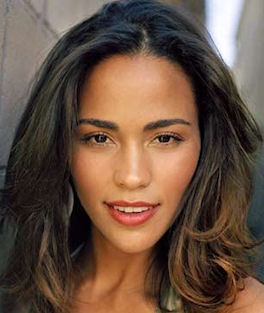The Problem for the BC NDP: Way Too Much Hate
This morning there was a fascinating analysis of the recent BC election. You can hear it by clicking here and tuning to 37:00. Here's the first part of the discussion:
Bill Good: "Vaughn, we had an election on Tuesday. Not much has changed. The Liberals still govern. The NDP is probably trying to figure out what it has to do to remake itself. Your thoughts following the election?"
Vaughn Palmer: "Yeah, it was a status quo outcome with almost exactly the same gap in the popular vote as in 2005: 4 points. Almost exactly the same gap in the number of seats in the House: 13. Very few seats actually changed hands. The two parties sort of emerged from the election where they were going into it. And yeah the challenge for the New Democrats is - 42% is a pretty good showing in the popular vote - in tough economic times when people weren't inclined to change government, but what do you do? How do you get that last bit of the gap closed to form government or do you say, 'Well, we're going to be in opposition forever' ?"
Bill Good: "Keith, Philip asked this morning, 'Is the problem the horse or the jockey?' and I think that's a very good question. I think the horse is tired."
Keith Baldrey: "It is tired. The NDP, I think, has some fundamental problems and challenges. It's not fair at all to blame Carole James for this situation. A senior NDP strategist once told me some time ago, 'It's easy for us to get to 40 points in the public opinion arena. For us to grow after that is hard slogging.' Every vote after they hit that peak of 40% is tough for the NDP to pick up because then they're going after mainstream, middle of the road voters who can be turned off pretty quick by anything that smacks of idealogy, that smacks of something they're not comfortable with. And that's where I think the NDP hit a bump in this particular election campaign. Their relentless negative portrayal of Gordon Campbell, their advertising, I think was a turnoff to the key rump of voters that they needed to attract. I mean, that plays well to people who are going to vote NDP anyway, who hate Gordon Campbell, who hate the Liberals and would never vote for them at all. But when you're trying to attract people who are either undecided, maybe leaning one way or another, that is not the way to attract those voters. So Carole James certainly has responsibility for this outcome but there are a lot of people in the NDP camp who I think have to be held accountable here and I think are going to brought on the carpet presumably by other people in the party for making some pretty bad calls early on."
Bill Good: "Vaughn, the NDP focused on the carbon tax, run-of-river projects, privatization. Did they miss the mark about what the public was really concerned about?"
Vaughn Palmer: "Well, I think the comment many have made is that they were all over the map. They came with a scattershot series. They went after Kinsella for a few days, they went after the carbon tax and then dropped that. They went after run-of-river power. Someone worked out that they had 4 different slogans for the campaign. So there was a lack of focus. But I think Carole James pulled it out for them. With that performance in the debate and a strong finish, they really are in a dilemma. Their problem is, if they go to a 3rd election with the same leader - the last time they did that they lost 3 in a row: Dave Barrett. On the other hand, she did pull it out for them. She deserves a decent interval to think about her own future. But the other thing I think they've got to do - this other thing that Keith just referred to, this relentless negativeness - look, it pains New Democrats to admit it but the most successful politician in modern times in British Columbia is named Gordon Campbell."
Bill Good: "Yes, he's lost one election in 25 years and he lost that by a whisker."
Vaughn Palmer: "Yes, he's won 9 elections! They loathe him. They pander to the people who hate him. They think it's hilarious to run an ad showing him as a drunk. I've been hearing people from the election, 'The media let him off the hook for his drinking & driving'." Face it folks, this guy is your adversary, he's more successful in politics than you are so how do you beat him?"
Keith Baldrey: "Yeah, the NDP, by focusing on Campbell actually helped solidify the Liberals main strength, which is Gordon Campbell."
Bill Good: "Well you know, I thought the most interesting thing, or certainly one of them in the election, and I certainly didn't expect it, he was front and centre in every ad, he was on the posters, they didn't try to hide him. The NDP hid Carole James. She did a really good job, I agree with you, on the radio debate, on the television debate - whenever she was seen - but she was not seen in their advertising, she was not seen in their posters. Gordon Campbell they turned what many would have thought to be a negative into a positive and he was the centrepiece of the campaign. And they won!"
Keith Baldrey: "That wasn't Carole James' idea. This was the brains of the NDP campaign."
Bill Good: "So called."
Keith Baldrey: "[The NDP 'Brains'] who thought they'd come up with a winning strategy. So it's not Carole James. The NDP's campaign missed the mark on so many points and one of the strengths of the NDP is Carole James' positiveness, her warm demeanor, her personality, and they completely sheltered that and kept it from the public and focused entirely on Gordon Campbell. And again, one of the Ipsos-Reid polls before the election found that when it came to Liberal supporters and people who might be considering voting Liberal, Gordon Campbell was a strength for them. So by emphasizing Gordon Campbell I think just simply played into the Liberals hands of focusing on their best asset. NDP'ers are never going to vote for Gordon Campbell but that soft middle ground, they will vote for Gordon Campbell and they did this time."
Bill Good: "So Vaughn, how does the NDP grow? Or is it another party that comes along and says 'we're going to be centre left, we're going to be friendly to small business, we are going to somehow try to attract people who might not be onside with the Liberals but we're tired of the negativity of the NDP' ?"
Vaughn Palmer: "Well, I think they should - a question that arose, that Norman Spector actually raised when I talked to him on the TV show last night was, 'Do New Democrats ever talk up their own leader? Do they really go out there and say, here's what our leader's done for us and here's what's really worked?' They don't take pride in the fact, I don't think, not enough of it, that she's moderated their economic message. On the contrary, they gave her a platform that made it sound more left-wing than she is. She went around for 4 years, giving speeches to the business community, talking about growth, investment, how the NDP made mistakes in the 1990's and the New Democrats never talked that up. You get a New Democrat going and they'll tell you 'oh no, the 90's were great, there were no economic problems, it's all the media'. I think part of the problem is that they have to resolve among themselves to unite behind their leader and let her move them a little closer to the middle. They don't have to move very far, you know. The gap isn't huge between these two parties. It's like 4 points. Keith's right, it takes a bit of effort to get to the middle. The problem in the NDP you've got is that there's a bunch of people in the NDP that think the solution is to move left."
Keith Baldrey: "Yes, that's the problem. There's the class warfare element of the NDP who think that's how to win power in this province because they did it once in '96, where the vote was split big time, where the Reform Party was able to get 9 points. That's a lot of voters and that's what gave Glen Clark the election. It wasn't his assault on banks. But there are class warfare advocates in the NDP who think, 'If we just move hard left then we'll win' but that's just not enough voters."
Vaughn Palmer: "These people are crackpots. Here's their strategy summarized: 'We're going to move to the left and we're going to win - we're going to get our people really happy - we're going to win an election with 39 or 40% of the vote. How we're going to do that? Well, you know what we're going to do, we're going to talk up the Conservative Party because the Conservative Party will split the Liberals and then we get to split the vote in British Columbia and we'll win with 39%. This is a crackpot idea! It depends on the Conservative Party. Look what the Conservative Party did in the election: they took 20% of the vote in one riding, they took 17, 16 - they took a big chunk of the vote - they split the opposition vote. The Liberals won ever riding where the Conservatives did well. James should put the people that make those arguments on Call Block at party headquarters!"







































No comments:
Post a Comment